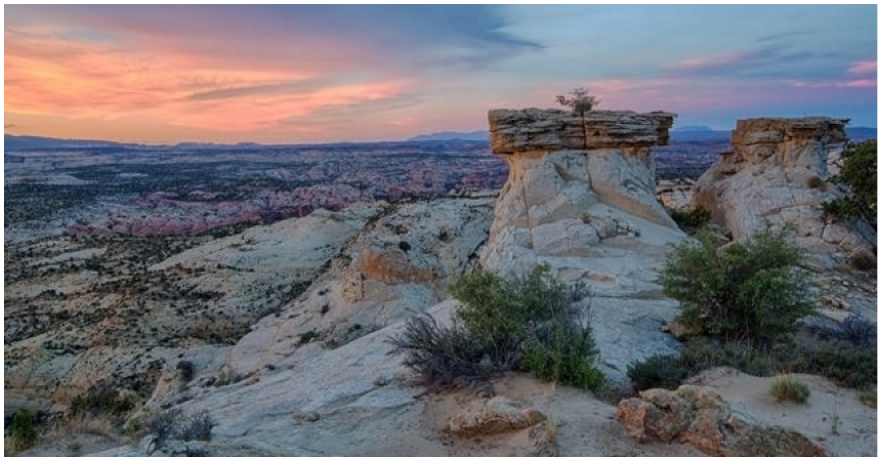When the Biden Administration took office last month, the President acted fast on climate and environmental issues, including ordering a review of the 2017 resizing of Utah’s Bear’s Ears and Grand Staircase-Escalante national monuments. KPCW’s Sean Higgins has more on the process of adding and taking away protections for public lands.
President Biden’s order to conduct a review on the previous administration’s decision to shrink Utah’s Bear’s Ears and Grand Staircase-Escalante national monuments was actually not the most immediate change he could have made.
Restoring the monuments to their original size would simply take an executive order reversing the 2017 one by the Trump Administration.
Making more permanent changes is a much more complicated process.
A federal rulemaking process would instead be required in order to place more permanent protections on public lands. That’s according to Pew Charitable Trust Project Director Ken Rait.
Rait told KPCW that the process to add protections -- or remove them -- really depends on the previous action and how permanent it is intended to be. For example, the Trump Administration’s rollback of a Clinton-era rule protecting Alaska’s Tongass National Forest late last year can only be undone by a lengthy public process as opposed to just issuing a new executive order.
“It’s gonna depend on the specific action,” said Rait. “The elimination of the Tongass Roadless Rule went through what is called a federal rulemaking process, and so, once it goes through a public process that is done through public notice and comment, you can’t just issue an executive order to overturn that, that would make that overturning of that decision legally vulnerable, so the administration needs to go back through a rulemaking process to get it done the right way. Something like the Grand Staircase and Bear’s Ears, that could be done, basically, with the stroke of a pen.”
Grand Staircase-Escalante was considered for coal mining at various points in the 1900s and was a factor in the decision for its designation as a national monument by the Clinton Administration.
Rait said many groups want to see more permanent protections put in place that cannot be easily undone via an executive order from a future administration.
“There is great interest in making sure that these decisions are durable and that we’re not gonna end up in this situation where protections will be created and then disappear, kind of like ping-pong from Republican to Democratic administration,” he said.
Opinions are strong on both sides of the public lands debate in Utah. State leadership at the federal and state level harshly criticized the Biden Administration’s suspension of new oil and gas leases on federal land and any future expansion of Utah national monuments is likely to solicit the same reaction.
Approximately two-thirds of Utah is made up of land owned by the U.S. Government -- neighboring Nevada is the only state with more -- and the debate over public land control has been a contentious one between the state and the federal government for decades.
The Biden Administration’s 60-day review of Bears Ears and Grand Staircase-Escalante ends in mid-March.
KPCW news reports on climate change issues are brought to you by the Park City Climate Fund at the Park City Community Foundation, an initiative that engages Park City in implementing local, high-impact climate solutions that have potential to be effective in similar communities.



